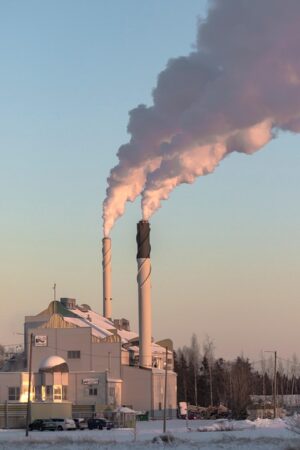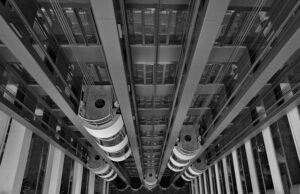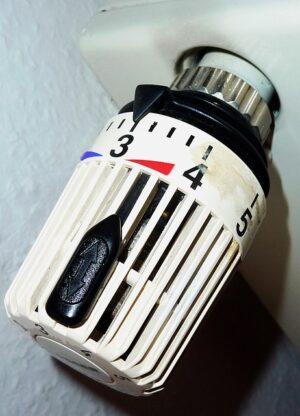Cold climates demand robust electric boiler designs to prevent freezing and damage. Modern electric heating solutions use advanced materials and innovative technology for efficient, sustainable heating, competitive with traditional fuel systems. Freeze-resistant electric boilers offer simplified installation, reduced costs, and minimal maintenance while providing consistent warmth and a smaller carbon footprint compared to gas boilers. Their advanced electric heating technology ensures optimal performance even at freezing temperatures, making them a preferred choice for residential use due to fast heat generation, precise control, and minimal energy wastage.
In regions with harsh cold climates, reliable heating solutions are paramount. This is where freeze-resistant electric boilers step in as game-changers. Designed specifically for such environments, these innovative systems offer a sustainable and efficient alternative to traditional heating methods. This article explores the unique challenges of cold-climate installations and how freeze-resistant electric boilers overcome them. We’ll delve into key design features, installation benefits, and performance evaluations, highlighting the advantages of this cutting-edge technology in freezing conditions, while emphasizing its role as an efficient electric boiler solution.
- Understanding Cold-Climate Challenges for Electric Boilers
- Key Features of Freeze-Resistant Electric Boiler Design
- Installation Benefits and Considerations for Cold Environments
- Performance Evaluation: Efficiency in Freezing Conditions
Understanding Cold-Climate Challenges for Electric Boilers

Cold climates present unique challenges for electric boiler installations. Unlike their more temperamental counterparts, electric boilers require robust designs to withstand prolonged exposure to freezing temperatures. The primary concern is preventing water inside the boiler from freezing, which can lead to costly damage and system failure. This is especially critical in residential electric boilers used for central heating, where a malfunction during winter months can leave homes uncomfortably cold.
The challenge extends beyond just the boiler itself. Electric HVAC systems, including those that utilize electric space heating, must be integrated with freeze-resistant technology to ensure reliable and energy-efficient home heating. Modern electric heating technology offers promising solutions, focusing on innovative designs and advanced materials capable of sustaining subzero conditions. By embracing these advancements, residential electric boilers can now compete with traditional fuel-based systems in cold-climate regions, providing homeowners with clean heating systems that are both effective and economical.
Key Features of Freeze-Resistant Electric Boiler Design

In the design of freeze-resistant electric boilers tailored for cold-climate installations, several key features stand out. These advanced systems are engineered to withstand subzero temperatures, ensuring reliable operation even in the harshest conditions. One prominent feature is their ability to maintain stability and prevent freezing inside the boiler, a common challenge with traditional heating systems. This is achieved through innovative insulation technologies that protect critical components from ice buildup, allowing for continuous thermal output.
Moreover, these electric boilers often incorporate smart controls and advanced heating elements that optimize energy efficiency. As residential electric boilers or clean heating systems, they offer eco-friendly alternatives to fossil fuel-based electric HVAC systems and home heating boilers. The electric heating technology incorporated into these freeze-resistant models not only provides efficient energy-efficient heating but also reduces environmental impact, making them a popular choice for those seeking sustainable electric space heating solutions.
Installation Benefits and Considerations for Cold Environments

In cold-climate environments, installing a freeze-resistant electric boiler offers several advantages. Firstly, it eliminates the need for complex and expensive anti-freezing mechanisms commonly required in traditional boiler systems. This simplifies the installation process, reduces initial costs, and minimizes ongoing maintenance requirements. Electric boilers are also highly energy-efficient, as they directly heat water without generating excess heat loss through radiators or vents, a common issue with electric central heating systems.
Additionally, residential electric boilers have a smaller carbon footprint than their gas counterparts, making them an attractive option for those seeking clean heating systems. They are versatile and can be easily integrated into existing plumbing systems or used as part of new construction projects. Home heating boilers utilizing electric heating technology provide consistent and comfortable indoor temperatures, ensuring residents stay warm throughout the coldest months without the hassle often associated with traditional boiler systems in extreme cold environments.
Performance Evaluation: Efficiency in Freezing Conditions

In cold-climate installations, an electric boiler’s performance is rigorously evaluated for efficiency under freezing conditions. Unlike traditional fuel-based systems that may struggle with low temperatures, modern electric boilers leverage advanced electric heating technology to maintain optimal operation even in the harshest environments. This ensures consistent and energy-efficient heating throughout the year, making them a preferred choice for residential electric boilers and clean heating systems.
The efficiency of these electric HVAC systems is particularly notable during prolonged periods of subzero temperatures when other boiler systems may face challenges. Electric space heating offers several advantages in such scenarios, including faster heat generation and more precise temperature control. This not only enhances comfort but also contributes to overall energy conservation, as residential electric boilers can effectively manage load demands with minimal wastage, thereby promoting sustainable home heating practices.
The freeze-resistant electric boiler represents a significant advancement in heating solutions for cold-climate regions. By addressing key challenges outlined in this article, its innovative design offers enhanced performance and reliability in freezing conditions. This sustainable and efficient technology provides homeowners and businesses with an effective alternative to traditional boilers, ensuring comfort and energy savings even in the harshest environments. The electric boiler’s versatility and adaptability make it a top choice for navigating cold-weather installations.






